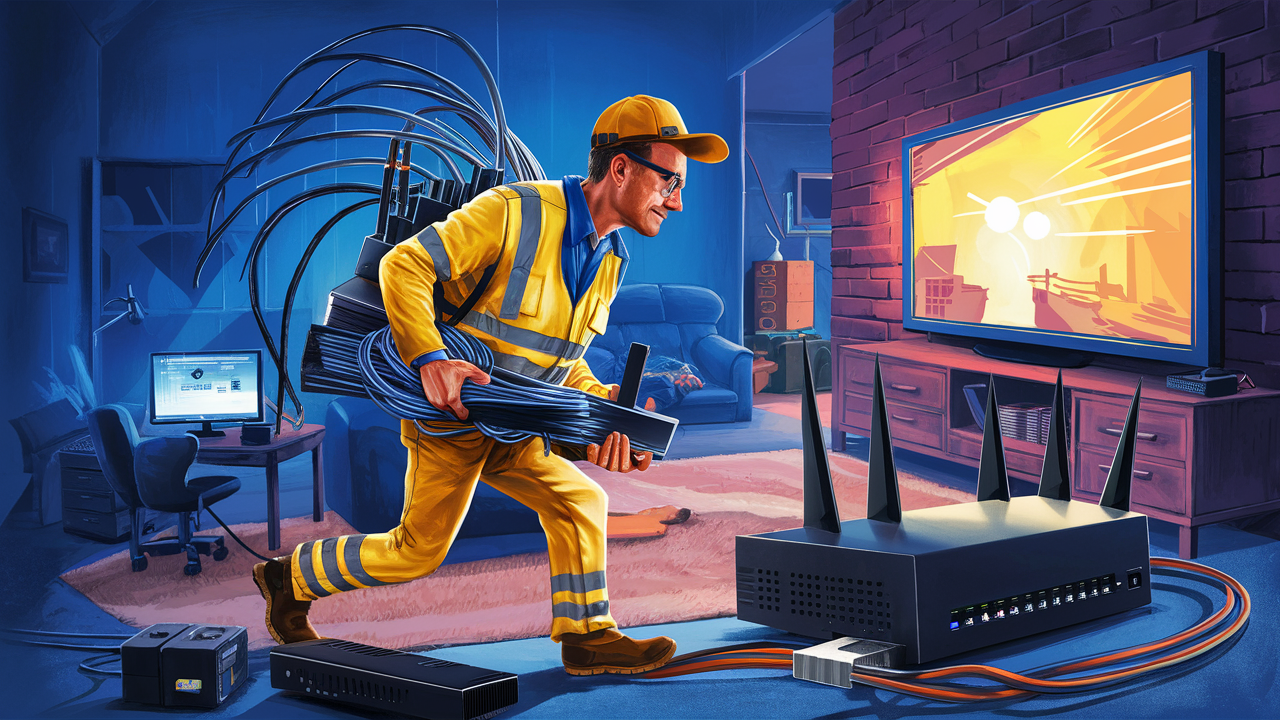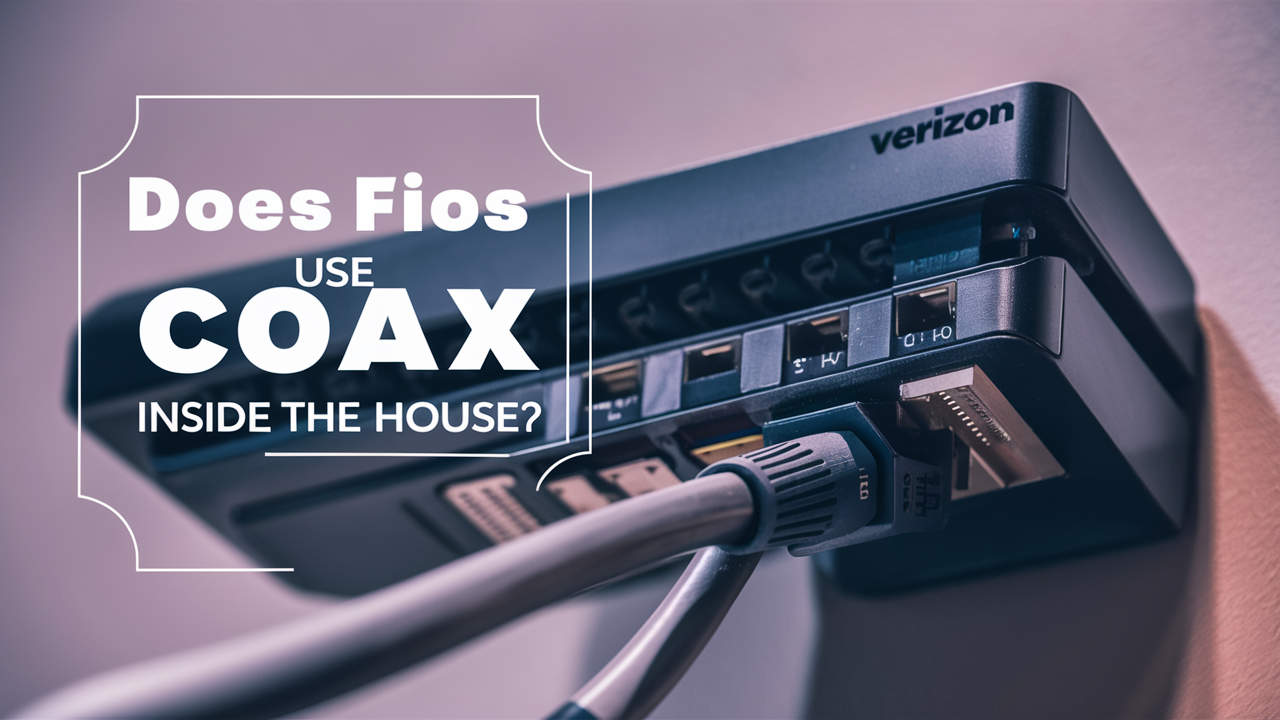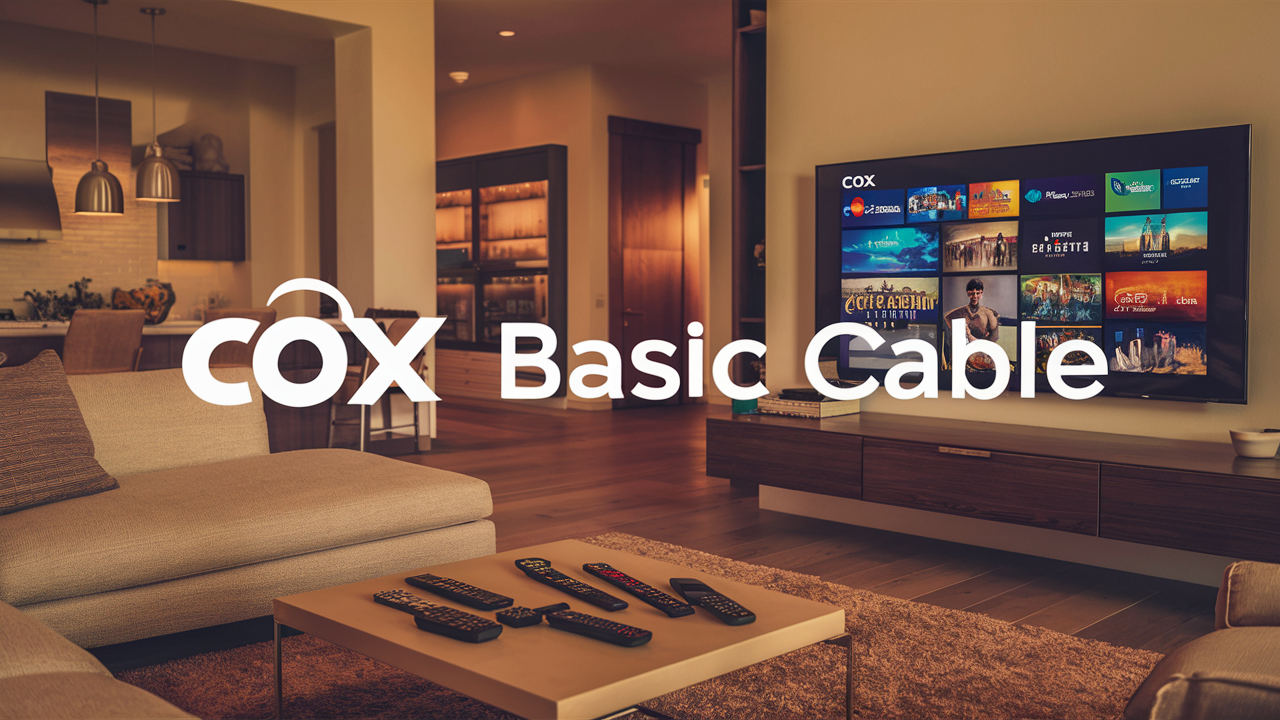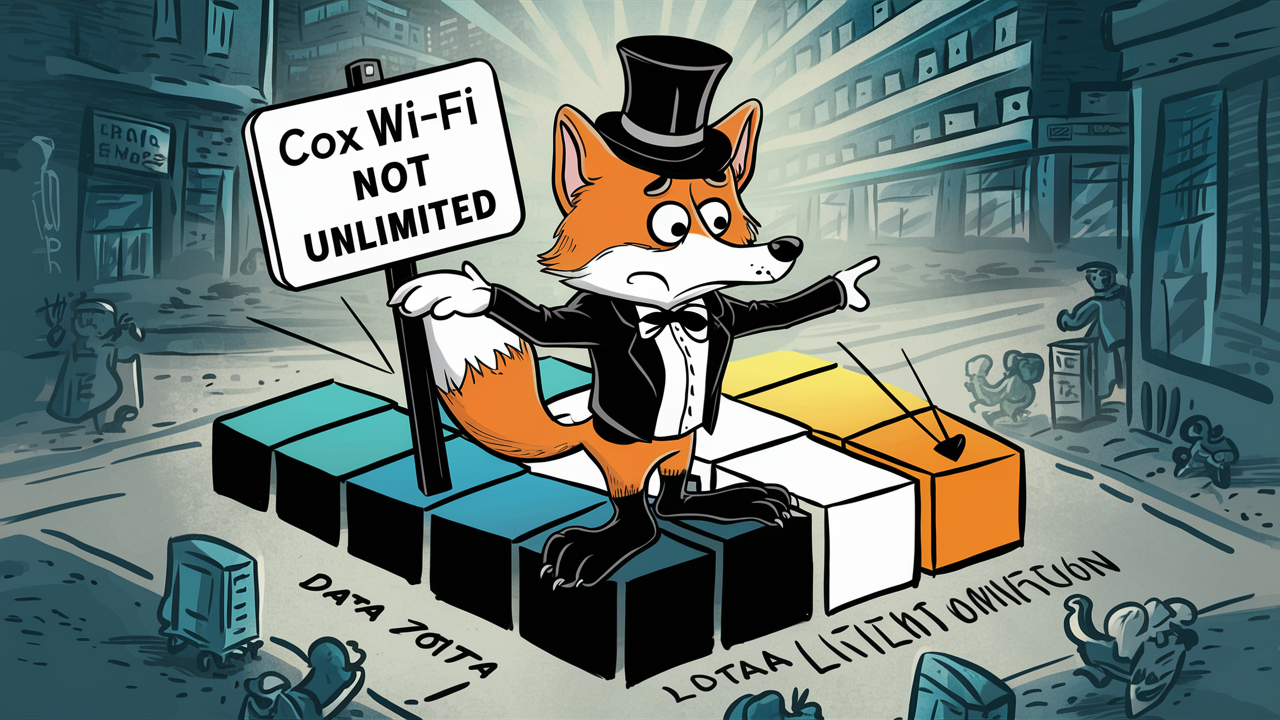Does Cox Charge for Internet Installation?

This article comprehensively addresses whether Cox charges for internet installation in 2025. We explore installation fees, potential waivers, self-installation options, and factors influencing costs. Understand what to expect and how to potentially save on your Cox internet setup.
Does Cox Charge for Internet Installation? A Deep Dive for 2025
In the dynamic world of internet service providers, understanding the costs associated with getting connected is paramount. For many consumers, the question of whether Cox charges for internet installation is a crucial factor when deciding on a new service provider. As of 2025, the answer is nuanced: yes, Cox generally charges a fee for professional internet installation. However, this fee can vary significantly based on several factors, including the type of service, promotional offers, and whether you opt for professional installation or a self-setup. This article aims to provide a comprehensive overview of Cox's installation practices in 2025, detailing the typical charges, the factors that influence them, and strategies to potentially minimize these costs. We will delve into the specifics of professional versus self-installation, explore scenarios where fees might be waived, and offer practical advice for a smooth and cost-effective setup process. By the end of this guide, you'll have a clear understanding of what to expect when installing Cox internet in your home.
Understanding Cox Internet Installation Fees
Cox Communications, like most major internet service providers (ISPs), typically imposes an installation fee for new customers who require a technician to visit their home to set up internet service. This fee covers the cost of dispatching a qualified professional, the labor involved in running cables (if necessary), configuring the modem and router, and ensuring a stable connection. In 2025, the standard professional installation fee for Cox internet can range from approximately $50 to $100. However, this is a general guideline, and the exact amount can fluctuate based on specific plans, equipment needs, and ongoing promotions. It's important to note that this fee is distinct from any equipment rental charges or monthly service costs. The installation fee is a one-time charge to get your service up and running. Understanding this initial cost is crucial for budgeting your new internet service. Many customers are keen to know if this fee is negotiable or avoidable, which we will explore further in subsequent sections.
The Standard Professional Installation Charge
The most common scenario involves a professional installation. When you sign up for Cox internet, especially if you're a new customer or moving to a location where service isn't pre-wired, Cox will likely schedule a technician visit. This technician is responsible for ensuring that the necessary infrastructure is in place and functioning correctly. This includes connecting your home to Cox's network, setting up the modem, and often assisting with router placement and initial Wi-Fi setup. The charge for this service is a standard fee, which, based on industry reports and customer feedback in early 2025, typically falls within the $50 to $100 range. This fee is designed to cover the operational costs associated with these appointments.
What Does the Installation Fee Cover?
The professional installation fee is not merely a token charge; it represents the tangible costs incurred by Cox to deliver a functional internet connection to your premises. This typically includes:
- Technician's Time and Expertise: A skilled professional is dispatched to your home, requiring compensation for their labor and knowledge.
- Equipment Provisioning: While you might rent modems/routers, the technician ensures they are correctly connected and configured for your specific service tier.
- Cabling and Wiring: If new cables need to be run from the demarcation point (where Cox's service enters your home) to your desired modem location, this is part of the service. This can include drilling small holes for discreet cable routing.
- Signal Testing and Optimization: The technician will test the signal strength and quality to ensure you receive the speeds you're paying for and that the connection is stable.
- Initial Network Setup: They will activate your service on Cox's network and perform initial troubleshooting to resolve any immediate issues.
It's important to understand that this fee is for the initial setup. If you move and need to set up service at a new address, you will generally incur another installation fee. Similarly, if you have a service interruption and Cox determines the issue is with their equipment or external wiring, a technician visit might be necessary, and in some cases, a service call fee could apply, though this is usually covered if the problem is a Cox network fault.
The Cost Breakdown: What Influences Installation Charges?
Several variables can influence the final installation cost you encounter with Cox. While a base fee exists, these factors can either increase or, in some cases, decrease the amount you pay. Understanding these elements empowers you to make informed decisions and potentially negotiate better terms.
Type of Service and Equipment
The complexity of the installation can vary depending on the internet speed tier you select and the equipment involved. For instance, installing a basic internet package might be more straightforward than setting up a high-speed fiber optic connection that requires specialized equipment or more intricate wiring. While Cox's standard installation fee generally covers most residential internet setups, extremely complex installations requiring extensive wiring or specialized configurations might incur additional charges, though this is relatively rare for typical home users. The type of modem and router you choose (rented from Cox or purchased by you) can also indirectly affect the installation process, but usually not the fee itself, unless Cox's equipment requires specific setup procedures.
Promotional Offers and Bundles
This is perhaps the most significant factor influencing installation costs. Cox frequently runs promotions for new customers, and waiving or reducing the installation fee is a common incentive. These offers are often tied to signing up for specific internet plans, bundling services (like TV or phone), or committing to a contract period. For example, a new customer signing up for a 2-year agreement on a high-speed internet package might find the installation fee completely waived. Similarly, bundling internet with Cox Contour TV and Voice services could also unlock promotional discounts on installation. It is crucial to ask about current promotions when you are signing up, as these offers can change frequently and may not always be advertised upfront. Online sign-ups might also present different promotional offers compared to phone or in-store sign-ups.
Location and Existing Infrastructure
The existing infrastructure at your home plays a role. If your home has pre-existing coaxial cable outlets that are in good condition and easily accessible, the installation might be simpler and quicker. However, if the existing wiring is outdated, damaged, or non-existent, the technician might need to run new cables, which could potentially add to the complexity and, in rare cases, the cost. For example, if you are moving into a brand-new construction home or a property that hasn't had cable service before, the technician will need to establish the initial connection point and run wiring from the outside of the house to your desired modem location. While Cox's standard fee generally accounts for a reasonable amount of wiring work, extremely extensive or difficult installations (e.g., running cables through finished walls in multiple rooms, requiring specialized tools) could theoretically incur additional charges, though this is uncommon for standard residential setups.
New Customer vs. Existing Customer
Installation fees are primarily aimed at new customers establishing service. If you are an existing Cox customer moving to a new address, you will likely need a new installation, and thus, a new installation fee will apply. However, if you are an existing customer adding a new service (like TV to your existing internet), the installation fee might be different or even waived as part of a service upgrade or bundle promotion. It's always best to clarify this with Cox customer service when making changes to your account. Sometimes, if service was recently active at your address and the previous customer left the equipment in place and functioning, Cox might offer a simplified activation process that could potentially reduce or eliminate the need for a full professional installation, although this is not guaranteed.
Self-Installation vs. Professional Installation: A Cost Comparison
Cox offers customers the option of self-installation for internet service, which can be a significant cost-saving measure. Understanding the differences between self-installation and professional installation is key to deciding which is best for your situation and budget.
Professional Installation
As discussed, this involves a Cox technician coming to your home to set up the service. The typical fee ranges from $50 to $100. This option is ideal for those who want a hassle-free setup, are not comfortable with technical tasks, or require complex wiring or troubleshooting. It ensures the service is installed correctly by an expert, minimizing the risk of connectivity issues from the outset.
Self-Installation
If your home already has active cable outlets and the necessary wiring is in place, Cox often allows for self-installation. In this scenario, Cox will ship you a self-installation kit, which typically includes a modem (if you're renting one), necessary cables (like coaxial and Ethernet), and a step-by-step guide. The cost for self-installation is generally significantly lower, often $0 or a nominal shipping fee. This option is perfect for tech-savvy individuals who are comfortable following instructions and performing basic connections. It requires you to connect the modem to the cable outlet and your router, power everything on, and activate the service online or via phone. The activation process is usually straightforward and guided by Cox's online portal or customer service.
When is Self-Installation Possible?
Self-installation is typically an option when:
- You are moving into a residence where Cox service was previously active and the wiring is still in place and functional.
- You are an existing customer adding internet service to your home, and the necessary outlets are already installed.
- The installation does not require new wiring to be run or any complex configuration.
Cox's website or customer service representatives can confirm your eligibility for self-installation when you place your order. If you are eligible, choosing self-installation can save you the standard professional installation fee, making it a very attractive option for budget-conscious consumers in 2025.
When Are Installation Fees Waived or Discounted?
While Cox typically charges for professional installation, there are several common scenarios where these fees are waived or significantly discounted. Being aware of these opportunities can lead to substantial savings.
New Customer Promotions
As mentioned, Cox frequently uses waived installation fees as a powerful incentive to attract new subscribers. These promotions are often advertised during sign-up periods, especially for high-speed internet plans or when bundled with other Cox services like TV or phone. Always inquire about current new customer offers when you are signing up. These deals can change monthly or even weekly, so it's worth checking the Cox website or speaking with a sales representative directly.
Bundled Services
Customers who bundle their internet service with other Cox offerings, such as their cable TV packages (e.g., Cox Contour TV) or home phone service, often qualify for installation fee discounts or waivers. Cox aims to encourage customers to adopt their full suite of services, and reducing the upfront cost of installation is a common strategy to achieve this. If you're considering multiple services from Cox, a bundle deal is often the most cost-effective approach, and the installation fee waiver can be a significant perk.
Limited-Time Offers and Special Campaigns
Cox may run special campaigns or limited-time offers throughout the year, particularly during peak sales seasons (like back-to-school or holidays). These campaigns can include waived installation fees as a standalone promotion or as part of a larger package deal. Staying informed about these special offers, perhaps by subscribing to Cox's promotional emails or regularly checking their website, can help you capitalize on these savings opportunities.
Loyalty Programs or Upgrades
While less common for installation fees specifically, existing loyal customers who are upgrading their internet service or adding new services might occasionally be offered a waived installation fee as a gesture of goodwill. This is more likely if you have been a long-standing customer in good standing. It never hurts to ask customer service if any installation fee waivers are available for service upgrades or additions.
Geographic or Area-Specific Promotions
In certain geographic areas, especially those where Cox is competing with other providers or trying to expand its market share, they might offer more aggressive promotions, including waived installation fees, to attract customers. These offers can be localized and may not be available nationwide. When signing up, confirm if any specific local promotions apply to your address.
Navigating the Cox Installation Process: A Step-by-Step Guide
Whether you opt for professional or self-installation, understanding the process ensures a smoother experience. Here’s a general guide for 2025:
1. Sign Up for Service
Choose your desired internet plan on the Cox website or by calling customer service. During this process, you will be asked about your installation preference and informed about any associated fees and available promotions. Confirm your eligibility for self-installation if that's your preference.
2. Schedule Your Installation
If you choose professional installation, you'll schedule a date and time window for the technician's visit. For self-installation, Cox will arrange for the delivery of your self-installation kit, which includes your modem and other necessary components. Ensure you provide accurate contact information.
3. Prepare Your Home
For Professional Installation: Ensure the area where you want the modem and router to be located is accessible. Clear any clutter around the main cable outlet if possible. If you have specific placement needs for wiring, communicate them to the technician.
For Self-Installation: Unpack your kit. Identify the main coaxial cable outlet in your home. You'll need a power outlet nearby for the modem and router. Ensure you have a computer or mobile device ready for the activation process.
4. The Installation Day
For Professional Installation: The technician will arrive within the scheduled window. They will connect your home to Cox's network, install any necessary wiring, set up your modem, and test the connection. They can also assist with initial Wi-Fi setup and answer any questions.
For Self-Installation: Connect the modem to the coaxial cable outlet using the provided cable. Connect the modem to your router (if using a separate router) using an Ethernet cable. Plug in the power adapters for both devices. Follow the instructions in the kit to activate your service online or via the Cox app.
5. Activation and Testing
Activation typically involves visiting a Cox web page or using their app to confirm your service is ready. You may need to enter account information. Once activated, test your internet connection by browsing websites on multiple devices. If you encounter issues, consult the troubleshooting guide or contact Cox customer support.
6. Post-Installation
Review your first bill carefully to ensure all charges, including the installation fee (if applicable), are correct. Keep any documentation provided by the technician or the self-installation kit.
Maximizing Your Savings: Tips for Reducing Installation Costs
Saving money on your Cox internet installation is achievable with a strategic approach. Here are some actionable tips for 2025:
1. Prioritize Self-Installation When Possible
As highlighted earlier, if your home is pre-wired and you're comfortable with basic setup, self-installation is the most effective way to avoid the professional installation fee entirely. Always confirm eligibility when ordering service.
2. Actively Inquire About Promotions
Don't assume you know all the offers. When speaking with Cox sales representatives (online chat, phone, or in-store), explicitly ask about current promotions that include waived or discounted installation fees. Mention if you are a new customer or considering bundling services.
3. Consider Bundling Services
If you need TV or phone service as well, bundling these with your internet package can often unlock significant discounts, including a waived installation fee for the entire bundle. Calculate if the overall cost of the bundle is beneficial for your household.
4. Negotiate (Politely)
While not always successful, especially with standard offers, don't be afraid to politely ask if there's any flexibility on the installation fee, particularly if you're comparing offers from competing ISPs. Sometimes, customer retention departments have more leeway.
5. Look for Third-Party Offers
Occasionally, third-party retailers or affiliate websites might offer exclusive sign-up bonuses or discounts that could offset the installation cost. However, always ensure you are dealing with reputable sources.
6. Be Aware of Contract Terms
Some waived installation fees are contingent upon signing a contract (e.g., 12 or 24 months). Understand the terms and conditions, including any early termination fees, before committing. If you prefer flexibility, you might have to pay the installation fee.
Customer Experiences and Expert Insights (2025 Data)
Based on customer feedback and industry analysis in early 2025, the experience with Cox installation fees is largely consistent with previous years, with the caveat that promotional offers are more prevalent than ever. Many customers report successfully getting their installation fees waived by bundling services or taking advantage of new customer promotions. Online forums and review sites show a trend where proactive customers who inquire about discounts are more likely to save. For instance, a common anecdote is a customer who was initially quoted a $50 installation fee but, after asking about bundles, had it reduced to $0 when they added a basic TV package.
However, some customers express frustration when they miss out on promotions or are unaware of the self-installation option. Experts in the telecommunications sector advise consumers to treat the installation fee as a variable cost that can often be negotiated or eliminated. They emphasize that ISPs like Cox use these fees and promotional waivers as strategic tools to acquire and retain customers. Therefore, understanding your options and asking the right questions is paramount.
Data from consumer satisfaction surveys in 2025 indicates that while the installation fee itself isn't the primary driver of dissatisfaction, a lack of transparency regarding these fees and missed opportunities for savings can lead to negative perceptions. Technicians themselves are generally rated positively for their professionalism and efficiency, but the initial cost remains a point of discussion for many new subscribers. The trend towards more robust self-installation kits and improved online activation processes suggests Cox is investing in making self-setup more accessible, further empowering customers to save on installation costs.
Conclusion
In conclusion, the question "Does Cox charge for internet installation?" in 2025 is met with a qualified "yes." Cox generally imposes a fee for professional internet installation, typically ranging from $50 to $100. This fee covers the cost of dispatching a technician to set up your service, ensuring all necessary connections and configurations are correctly implemented. However, this is not a fixed or unavoidable expense for all customers. Significant opportunities exist to reduce or eliminate this charge. The most effective strategies involve leveraging new customer promotions, bundling internet service with Cox's TV or phone packages, and actively inquiring about any available discounts or special offers during the sign-up process. Furthermore, if your home is already equipped with the necessary wiring, opting for Cox's self-installation option is an excellent way to bypass the professional installation fee entirely, often resulting in a $0 installation cost.
Customer experiences in 2025 suggest that proactive communication with Cox representatives is key to securing the best deals. By understanding the factors that influence installation costs—such as service type, existing infrastructure, and promotional eligibility—consumers can make informed decisions that align with their budget. We recommend thoroughly exploring all available options, comparing different plans and bundles, and always asking about installation fee waivers before committing to a service agreement. Ultimately, while Cox does charge for professional installation, a little research and strategic planning can help you significantly minimize or even eliminate this upfront cost, paving the way for a more affordable and satisfying Cox internet experience.





